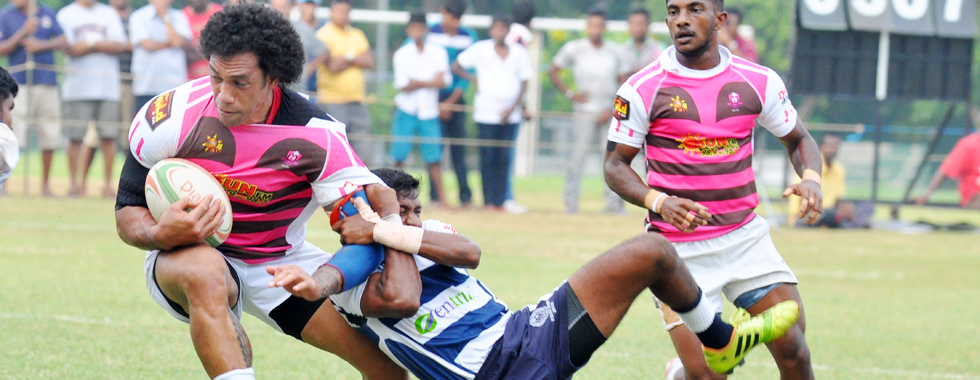How to win a boat race
View(s):Running rugby is what a spectator wants to see. It is a skillful style of play where you support the ball carrier and keep the ball moving in preference to rucking, mauling and kicking for position.
That is something we don’t see often in the game here other than in sevens. Rugby is about playing as a team. Running rugby is a style played by  teams of fit and skillful players. Mark Ella in his chapter on “The Philosophy of Attack” explains how attacking plays are used to create uncertainty and cause defenders to hesitate. “The simplest way of creating uncertainty is by deception. You have to make the defending team believe, or at least suspect, that you are going to do one thing, when your intention is to do another”. Running rugby requires skills in Passing catching and Support skills. The ability to put yourself in the place you can be most useful at exactly the right moment, running at the correct angle and the correct speed requires a great deal of practice. This also requires a Fit mobile set of forwards to use the ball.
teams of fit and skillful players. Mark Ella in his chapter on “The Philosophy of Attack” explains how attacking plays are used to create uncertainty and cause defenders to hesitate. “The simplest way of creating uncertainty is by deception. You have to make the defending team believe, or at least suspect, that you are going to do one thing, when your intention is to do another”. Running rugby requires skills in Passing catching and Support skills. The ability to put yourself in the place you can be most useful at exactly the right moment, running at the correct angle and the correct speed requires a great deal of practice. This also requires a Fit mobile set of forwards to use the ball.
The above thoughts came to my mind as I watched the domestic league 2014 start off last week. Most comments were that this was the first week and one cannot expect running Rugby. The expectation that a spectator would have when he takes time off his nap is to enjoy a game of rugby.
If you keep the running passing as well as evasive skills to the foreigners in your team one cannot expect running rugby. It will be one or two

Action from the CH&FC vs Police game
running, looking to score while others don’t row. Police led 28 points to 22 over Havelock’s while the Fullback of Fijian background kept grounding the ball for a hat-trick of tries. Once he left the field early in the second half the rowing continued but they seemed to lack the coxswain and lost direction to the try line and went down to Havelock’s by 48 points to 28.
Navy got the better of Hambantota Sharks and with key positions covered with new recruitment they will be a top contender this season and are being ably steered in this direction. Kandy played well as a unit to win 78 to 9 while they made the backs work to the goal line and make holes in the Air Force side which look like a school boy team. Air Force continues with its local only policy and will find it tough as the season progress.
CR who was led 15 to 21 by the Army at half time managed to come back strong and win 28 points to 21. Again the Army failed to capitalise on the lead they took at half time and did not have the power of their foreign players around whom they could fashion a win.
The first week saw Kandy, Navy, Havelock’s and CR stay unbeaten while CH received a bye. Kandy and Navy playing more professionally and Havelock’s showed that they have the Potential to stay focused as shown by their performance in the second half seem a notch ahead among the teams that played on the week end. CR though winning has to do some soul searching if they are to keep up at the top.
This being the scene in rugby I thought I should share some thoughts from article I read titled “ A rowing team also needs a Leader.” This analogy reflects on companies which are hierarchical and focusing on ‘strategy talk’ but cannot win due to less focus on execution. This same thinking can be applied to rugby playing clubs who try all else rather than focus on the execution and synchronised actions required to win. In rowing the one person steering the canoe has to be skilled in the sport and be able to inspire the team and direct them to the goal, otherwise, that team will lose.
A Japanese company and an American car manufacturing company decided to have a canoe race on the Missouri River. Both teams practiced long and hard to reach their peak performance before the race. On the big day, the Japanese team won by a mile. The Americans, very discouraged and depressed, decided to investigate the reason for the crushing defeat.
A management team made up of senior management was formed to investigate and recommend appropriate action. Their conclusion was the Japanese team had 8 people rowing and 1 person steering, while the American team had 8 people steering and 1 person rowing. So the American management hired a consulting company and paid them a large amount of money for a second opinion.
They advised that too many people were steering the canoe, while not enough people were rowing. To prevent another loss to the Japanese, the Americans’ rowing team’s management structure was totally reorganized to 4 steering senior managers, 3 steering senior consultants and 1 steering associate. Which meant there was 1 rower and many (8) advisors with titles.
They also implemented a new performance system that would give the 1 person rowing the boat (the steering associate) greater incentive to work harder. It was called the “Rowing Team Quality First Program,” with meetings, dinners and free pens for the rower. There was discussion of getting new paddles, canoes and other equipment, extra vacation days for practices and bonuses. The next year the Japanese won by two miles.
Humiliated, the American management laid off the rower- steering associate for poor performance, halted development of a new canoe, sold the paddles, and canceled all capital investments for new equipment. The money saved was distributed to the Senior Managers as bonuses, not to mention the big boss taking a large chunk, and the next year’s racing team was outsourced to India!
Even though it’s good for a laugh, the content should make you reflect on aspects of leadership and strategy that can make winning a part of life. The story may not be far off our shores of rugby as particularly many heads roll in schools as well as clubs which have many steering and few rowing . This is not limited to playing teams.
* Vimal Perera is a former Rugby Referee, coach and Accredited Referees Evaluator IRB


